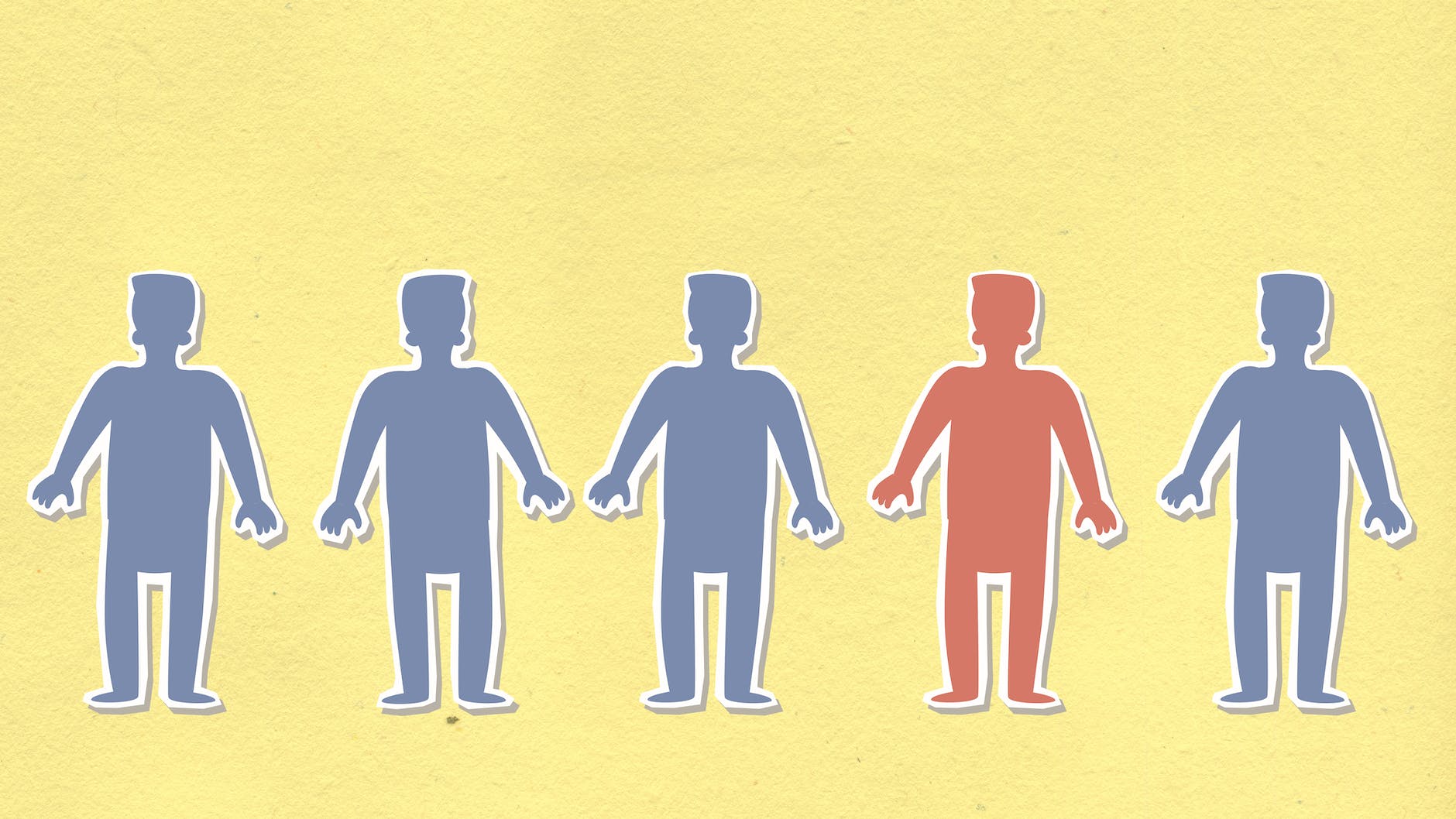The Exceptions, Unaccepted
Hey, folks.
I want to talk about being exceptional.
Going in I want to be clear up front that I think most of us are exceptional and the majority of those are exceptional in some positive, constructive, beautiful, and powerful way.
There’s a back side to all of that, though, that has become particularly visible in the wake of the rise of “participation trophy” parents and the embarrassed children they blamed for their silliness. A lot of folks who frankly aren’t nearly as exceptional as they think strutting around being aggressively average, that sort of thing. Folks who like to throw how exceptional they are around in situations where it has little or no relevance in an attempt to exert their will on some unsuspecting maitre d’ who does not, indeed, know who you am.
Being “exceptional” means you’re an exception to some things.
That means you don’t get to throw a fit when you realize the world wasn’t made for you. I mean you can complain and get up and change it if you want, but just sitting around whining because you’re outside the mainstream and the world was made for those inside of it isn’t going to accomplish anything.
You’re an exception. Own it. Expect that you will be the exception, but only when it is as inconvenient as possible to you, and never when you could really use a little magic.
Stop trying to mainstream your exceptionality, that’s the exact opposite of being exceptional by definition.

Expect that the world is not made for you, and when that is more than a personal inconvenience and rises to the level of being symptomatic of a larger social ill, then by all means stand up and say something. Use whatever thing at which you’re exceptional to make the world around you a little better.
Being What You Are
Rise to it. Be exceptional. I don’t mean be exceptional by showing up every time there’s a flooded drainage ditch so you can show off your big truck, I mean show up to do the work without worrying about the reward.
That’s how we got baby changing stations in a few men’s bathrooms, finally (and how we got them at all to begin with). It’s also how we mitigated the worst of the AIDS crisis (but only after a whole lot of people died for no good reason). It’s how we’ve won incredible advances in civil rights and elected the first people in our nation’s history to the our two highest executive offices who weren’t white men, over the last fifteen years.
You can’t just sit around constantly complaining about how broken everything is and how it doesn’t work for you, when you’re also basking in the pleasures and privileges of being exceptional.
You have to bring solutions, you have to be able and willing to separate your own interests and your emotional attachment to them as your interests from whatever work you’re doing that may relate to those interests, you have to be willing to accept that you’re fallible and have probably been wrong at least once in your life that you’re still unaware of.
You have to accept that the price of being exceptional, by whatever laws of the universe you happen to believe in (or none at all, it’s still observable reality) is the obligation to apply your exceptions to the benefit of others. Failure to live up to this obligation tends to end poorly one way or another for those who do so. I’m an atheist; I don’t pretend to know why that is or assert some higher omniscient power who is carefully doling out punishments and rewards. I just observe that it is so.
“Noblesse Oblige”
It’s tough for most people out here right now. If you think of yourself as “exceptional” in some way, you’re getting some kind of break on that. A break you can use to help others alleviate their own pressure.
There’s an old joke/parable/aphorism about a guy who falls into a sinkhole maybe twenty, thirty feet deep, breaks his leg, and can’t get help from the priest or kindly old lady or doctor or millionaire walking by. Then some ragged hobo jumps down into the hole with him and says, “Listen, I’ve been here before; I know the way out. Follow me.”
That is your obligation as a person of exception. Noblesse oblige can be a pretty arrogant and toxic conceit, but it very much applies here if you are indeed somehow “exceptional,” and most of you are, somehow. (And not in any self-deprecating “yeah I exceptionally SUCK” kinda way either!)
If you’re exceptionally intelligent you owe it to the world to help them understand the things you do and they don’t…and you owe it to yourself to try to find a way to do it with tact so everyone doesn’t hate you for doing it. This was one of my blessings and curses; “gifted child.”
This is a conversation I don’t like having, so I’m going to say up front that people who brag about IQ scores and standardized test results are stupid and insecure. (That said, there’s a whole lot of internet trolling that amounts to “what makes you think you’re so smart?” “Well, years of exceptional results on various standardized aptitude tests.” “STOP BRAGGING!” You can’t beat stupid.)
When I talk about being a “gifted child,” as was the standard term at the time, I don’t mean I took a couple of watered down “AP” courses that don’t even rise to the level of standard-level classes forty years ago. I mean I was one of the kids in the 70s that psychologists and education specialists spent a lot of time being fascinated with and subjecting to an entertaining array of testing and observation as a young lad.
I don’t like going in to it because it’s almost impossible without sounding like you think you’re “better than,” and that’s rarely the case – certainly it isn’t with me. I was a godawful human being in a lot of ways for most of my teen years and early adulthood, into my early thirties, and being a “genius” has definitely brought more cost than benefit thus far – it’s probably a good thing for all of us I was only broken and not evil.
It’s really not a value or character judgement. Some folks have a knack for auto mechanics or agriculture; I have a knack for understanding things. Some people are taller than me, too, or shorter. You probably play better basketball than I do. It’s just not about “better,” and that’s part of the point of the article; we’re all exceptional somehow and most of us have something unique and wonderful to offer the world, without a bunch of ego-serving artifice like participation trophies.
One thing you eventually learn – and usually the hard way – when you’re in a position like that is that you can never, ever, ever count on being the “biggest one in the room,” no matter what the test scores say, and chances are in that room of ten thousand people there may only be one or two who have a greater capacity for learning, innately, than I do…but there are nine thousand nine hundred of them who are better and smarter than me about something.
So about little John Henry The Gifted Child Who Never Lived Up To His Potential: If you put stock in such things – and at the time they did, currently there’s a more nuanced understanding and some issues have been found with execution that tend to reinforce biases of economics and prejudice against girls as well as cultural, ethnic, and economic minorities – my “IQ” was around 150, give or take five or six points depending on which day of the week I took the test and what kind of mood I was in (and I took a whole bunch of ’em). That’s not an internet quiz result, that’s straight up Stanford-Binet & WAIS/WAIS-R & similar batteries and evaluations, administered by qualified professionals.
By way of comparison, average is around 100. The real “big brains” of history are estimated in the 200+ range – DaVinci, Newton, Leibniz, J.S. Mill, Einstein. You run down and find folks like Decartes and Michaelangelo around 180-ish, until you get down into my neighborhood (say 140-160) where you find folks like Ben Franklin, Paul Allen, Emerson, Bill Gates, Zuckerberg, FDR, Napoleon. A little lower and you start finding people such as Hillary Clinton, Thomas Jefferson, John Adams, Lincoln, Eisenhower, Washington and the like around 120-130.
Typically people start being referred to as ‘geniuses’ somewhere close to 130 or a bit higher.
In 1983 in 7th grade I pulled a 650 math and 710 verbal on the same SAT taken in the same room with several hundred high school juniors and seniors. According to the numbers that placed me in the top 0.02% of test results – and that’s the old school SAT with essays and page after page of Miller Analogies.
Put practically that means if you put me in a room with ten thousand people, statistically I’ll be one of the two “smartest” people in it (and the other will likely be DaVinci). There’s a reasonable probability that your UNIT tests and DATs and other more modern intelligence tests that started coming out in the 1990s were developed or refined in part using data that originated with me and certainly with some of the roughly 1.4 million human beings on this planet who could properly be said to be “like me” in this regard, and all the tests and observations we went through in the 70s and 80s.
School personnel wanted to jump me twice – in first grade they wanted to put me in fourth, and in 8th grade they wanted to make me a high school junior taking a couple of college courses on the side. My folks said no, using the excuse they didn’t want me to be socially maladjusted (hah!) but mostly because it was a lot of hassle and some money and they didn’t want to.
So yeah, if you’re from that time or were there and remember those feel good news stories you used to see like ‘Third Grader Earns Fifteenth Doctorate?’ That was almost me, except I was from a deeply dysfunctional home. There’s a ton of writing I want to do about that whole experience.
I’m not that obnoxious neckbeard who’s constantly jumping in to conversations with “well, actually…” and “not all men!” and the like.
I’m the person that guy thinks he is.
The “advanced placement” kids of the 90s and 2000s and now are basically dealing with the ideas developed around people like me fifty years ago, which were then extended outward and more toward the mainstream and neurotypical (or at least the perceived ideals therein) as yet another way to stratify and define kids before they’re old enough to even know they’re individuals. There’s an aspect of the whole “participation trophy” thing here, too, but again that’s not the kids’ fault.
That whole “common core math” thing? That’s a ham-handed attempt to teach people who aren’t walking around with a brain and a half how to math like people who are…written by people who aren’t and who don’t understand the internal thought processes that make things “normal” people struggle with seem so obvious to someone like me that we can barely break them down far enough to describe. (Like the reality that profit motive is always a conflict of interest and therefore probably shouldn’t be a part of socially critical infrastructure systems like health care and criminal justice…) I recognize the behavior it’s reaching for, it’s just not quite getting there because the people who designed aren’t the people who think that way – I am, that’s why I can see it.
Unfortunately, it’s not the people who think that way, who design the curriculum; it’s the people who study the people who think that way and then try to interpret, describe, and explain it without being able to actually think that way themselves. A bit like if I were explaining a Matisse – I’ve got words to describe it all day long, but I couldn’t recreate it on a bet.
If you’re exceptionally talented at some creative art, you owe it to the world to give them the beauty you’re capable of – or the pain – so they can find the places within themselves those feelings exist and explore them and utilize them and, when necessary, survive them.
Not only that you owe it to all those poor souls who feel the same tempests and trials and terrors you do but lack your exceptional skill at communicating it and sharing it; you let the lost souls of the world know they’re not alone.
If you’re exceptionally wealthy you owe it to the world who doesn’t have a lot of wealth to do what you can to help people out; nobody EARNS a billion dollars, ever – more to the point nobody EARNS their way to being that far outside the top of the bell curve economically. At best one skillfully manipulates one’s self into such a position without violating too many ethics too egregiously along the way if they’re lucky and even care to try and act ethically.
Why do you “owe” this? Because without other people doing the same for you – usually without any idea who you are or will be or even that you, as an individual, exist – you would not be here. There isn’t a man, woman, or child alive on this planet whose existence is not predicated on millions of other men, women, and children paving the way for them. Tell yourself otherwise if you choose; that just means you’re also an arrogant liar who’s capable of successfully lying to themselves.
Getting There
Most anyone reading this or likely to or even able to is exceptional in at least several different ways simply for that fact. You’re literate, you have access to a computer, etc.
If we really want to reach that shiny, peaceful, prosperous, progressive future that we’ve all dreamed about and hoped for and seen on the covers of the sci-fi novels, it is absolutely up to each and every one of us to be at our most exceptional to the greatest benefit of those around us at every possible turn.
Is it possible to get it right every time? Of course not. But you work toward it. You strive, you don’t write it off as an impossible dream, only one that won’t be reached immediately and may never be so completely, but you can’t let that stop you because by definition that’s what striving means, it’s taking on the risk – and sometimes the reality! – of failure, learning from it, picking yourself back up and moving forward having done your best to improve yourself for the experience – if by no other means than not making the same mistake again.
That’s how we get there.
I haven’t always been a good human being, and I’ve never pretended to have been. But that hasn’t stopped me from getting better. Not as in somehow “cured” but as in improving in the ways that are important to me, like not being the abusive jerk I was until I faced the reality that I was making choices and started striving to choose better when I was around thirty. Sometimes I’ve failed, sometimes I’ve succeeded. Sometimes I’ve succeeded in ways that look like failures from the outside. Sometimes I’ve failed in ways that looked like successes. You keep moving, you keep trying, you keep breathing and doing your best.
We all need to be doing that, right now, together. We need to be supporting each other in the acknowledgement of each of our individual human fallibility and failure and loving each other in spite of and sometimes because of it.
We’re all pretty exceptional, and the list of people whose only exceptions are negative is pretty short. We owe it to ourselves, each other, and…well, the entirety of what we know as “reality” to use those exceptions together to create the best reality we can.
The other option is having less than the best reality that we can…and why would we choose that?
How do you find ways to use the things about you that are exceptional to help other people?













